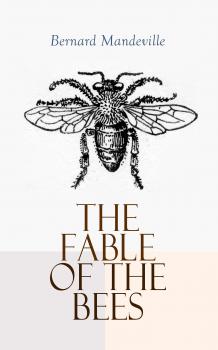Bernard Mandeville
Список книг автора Bernard MandevilleAn Enquiry into an Origin of Honour; and the Usefulness of Christianity in War
"An Enquiry into an Origin of Honour; and the Usefulness of Christianity in War" by Bernard Mandeville. Published by Good Press. Good Press publishes a wide range of titles that encompasses every genre. From well-known classics & literary fiction and non-fiction to forgotten−or yet undiscovered gems−of world literature, we issue the books that need to be read. Each Good Press edition has been meticulously edited and formatted to boost readability for all e-readers and devices. Our goal is to produce eBooks that are user-friendly and accessible to everyone in a high-quality digital format.
An Enquiry into the Causes of the Frequent Executions at Tyburn (1725)
"An Enquiry into the Causes of the Frequent Executions at Tyburn (1725)" by Bernard Mandeville. Published by Good Press. Good Press publishes a wide range of titles that encompasses every genre. From well-known classics & literary fiction and non-fiction to forgotten−or yet undiscovered gems−of world literature, we issue the books that need to be read. Each Good Press edition has been meticulously edited and formatted to boost readability for all e-readers and devices. Our goal is to produce eBooks that are user-friendly and accessible to everyone in a high-quality digital format.
The Fable of the Bees (Philosophy Study)
"The Fable of The Bees" is a book by Bernard Mandeville. It consists of"The Grumbling Hive"; and an essay, «An Enquiry into the Origin of Moral Virtue». In «The Grumbling Hive», the author describes a bee community that thrives until the bees decide to live by honesty and virtue. As they abandon their desire for personal gain, the economy of their hive collapses, and they go on to live simple, «virtuous» lives in a hollow tree. Mandeville implied that people were hypocrites for espousing rigorous ideas about virtue and vice while they failed to act according to those beliefs in their private lives. The Fable influenced ideas about the division of labour and the free market (laissez-faire), and the philosophy of utilitarianism was advanced as Mandeville's critics, in defending their views of virtue, also altered them. His work influenced Scottish Enlightenment thinkers such as Francis Hutcheson, David Hume and Adam Smith.
Aesop Dress'd; Or, A Collection of Fables Writ in Familiar Verse
"Aesop Dress'd; Or, A Collection of Fables Writ in Familiar Verse" by Bernard Mandeville. Published by Good Press. Good Press publishes a wide range of titles that encompasses every genre. From well-known classics & literary fiction and non-fiction to forgotten−or yet undiscovered gems−of world literature, we issue the books that need to be read. Each Good Press edition has been meticulously edited and formatted to boost readability for all e-readers and devices. Our goal is to produce eBooks that are user-friendly and accessible to everyone in a high-quality digital format.
The Fable of the Bees
"The Fable of The Bees" is a book by Bernard Mandeville. It consists of"The Grumbling Hive"; and an essay, «An Enquiry into the Origin of Moral Virtue». In «The Grumbling Hive», the author describes a bee community that thrives until the bees decide to live by honesty and virtue. As they abandon their desire for personal gain, the economy of their hive collapses, and they go on to live simple, «virtuous» lives in a hollow tree. Mandeville implied that people were hypocrites for espousing rigorous ideas about virtue and vice while they failed to act according to those beliefs in their private lives. The Fable influenced ideas about the division of labour and the free market (laissez-faire), and the philosophy of utilitarianism was advanced as Mandeville's critics, in defending their views of virtue, also altered them. His work influenced Scottish Enlightenment thinkers such as Francis Hutcheson, David Hume and Adam Smith.






